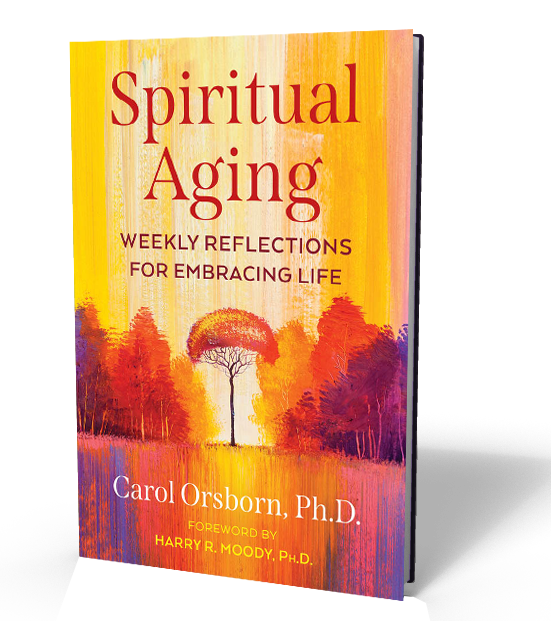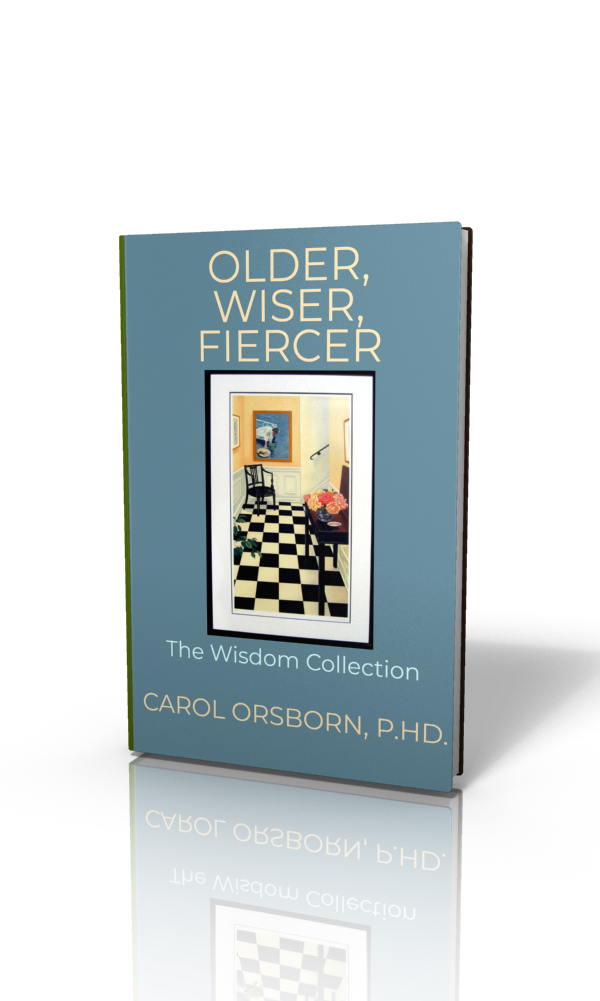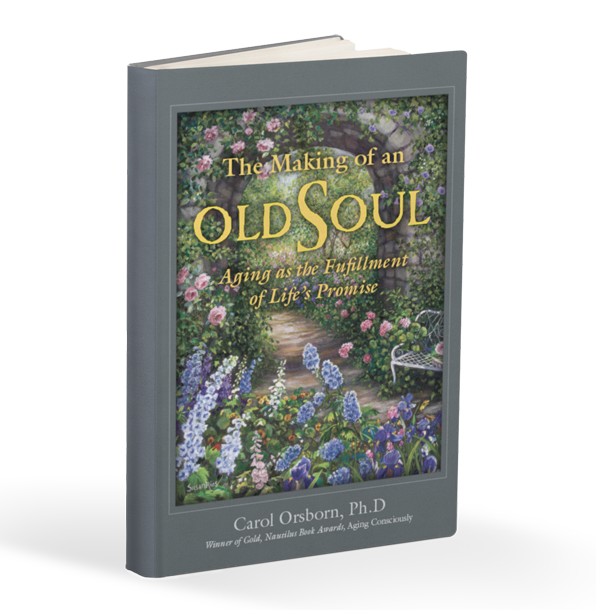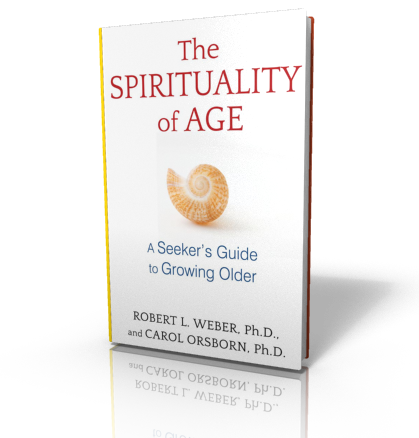Getting lost in your emotional reactivity isn’t where you want to be.
–Ram Dass
I want to apologize, right off the bat, for all those years and years of lunches, phone conversations and long walks in parks together in which I complained endlessly about my mother. When she passed, my bouncing ball of litanies, mostly justified, just found new playgrounds to keep the momentum going. The only saving grace in all this is that I was a good listener, too. And boy, did you have a lot to say about your mother, as well!
One of the greatest gifts of growing older is that I’m not nearly as fascinated with my original wounds as I used to be. It’s not that I don’t fall into the pit of feeling I wasn’t loved the way I deserved; the fear that I may be abandoned; that I’m inherently not good enough (and of course, who is to blame for all this.) But by now, I’ve run these storylines so many times, they’ve become boring—even to me.
Coming of age in the era of Oprah, consciousness raising and therapy, it is understandable that so many of us dove headfirst into primary relationship with our shadows—overturning every rock hoping to understand and master our original wounds. And as we explored our inner terrain with seemingly endless creativity, we shared our belief that by talking things through we really were getting somewhere.
And as it turns out, in a glacial-kind of pace, we were. At the very least, we had advanced one big step up from denial, taking the turn inward to fill our bookshelves with self-help literature, our calendars with consciousness raising workshops, coaches and counselors, and for some, transforming our shadows into works of art. But somewhere along the line—if we are lucky—we realize that while the process of spiritual growth does indeed entail opening to old wounds, that’s just step one. After we have sucked the denial-busting juice of productivity out of them– here’s the kicker—we are meant to get on with it.
This brings us to the next selection of the Sage-ing Book Club: Kathleen Dowling Singh’s The Grace in Aging: Awaken As You Grow Older. Singh, the recently departed Dharma practitioner and psychotherapist, understood how and why we fall for letting our wounds define us. Then she wrote a whole book about what can come next, if we’re willing to do the courageous work of truth-telling, humility, forgiveness and radical leaps of faith that true spirituality asks of us. It is, as Dowling put it, a matter of awakening—even from the dream of our own serious and well-intentioned introspection.
What does this awakening look like? Singh answered this with this poem by Jennifer Welwood.
My friends, let’s grow up.
Let’s stop pretending we don’t know the deal here.
Or if we truly haven’t noticed, let’s wake up and notice.
Look: Everything that can be lost, will be lost.
It’s simple—how could we have missed it for so long?
Let’s grieve our losses fully, like ripe human beings,
But please, let’s not be so shocked by them.
Let’s not act so betrayed,
As though life had broken her secret promise to us …
Let’s stop making deals for a safe passage:
There isn’t one anyway, and the cost is too high.
We are not children anymore.
The true human adult gives everything for what cannot be lost…
Growing up spiritually doesn’t mean you no longer have your original wound—and all the stories and emotions that you bundled up with it. It doesn’t mean you don’t ever again experience old, familiar places of sadness, anger, jealousy, fear and despair. But when you do, you know yourself well enough to trust that while you may not be able to avoid visiting these places from time to time, you do not need to take up permanent residency.
Hold yourself tightly—with as much love as you can muster for yourself, your world and the human condition—while you let yourself feel whatever it is with no need for understanding nor to do something about it. Yes, you didn’t get everything you wanted as a child, you will not as an adult; yes it is scary to admit that some things are beyond your control—take the future, for instance—and no matter how much therapy and meditation you do, you will still never be able to get everything to turn out the way you hope. You’ll lose things. You’ll be misunderstood. You’ll be alone. Sometimes. And you will die—for sure.
Then what? Writes Singh: “We need to decide if we really want to live and die smaller and more impoverished than we need to be….If we have any desire to ripen into spiritual maturity—into the abiding experience of the sacred, of all that lies beyond this small self—now is the time.”
I can assure you, this letting go of the addiction to your original wounds feels counter-intuitive as all get out at first. But there comes a time when the sheer magnitude of who you really are and what you have made of your life can no longer be circumscribed by the size of your story and breaks the container open. Shards everywhere. You arrive at last into the realm of the awakened grownup for whom over lunch, on the phone, on long walks, the conversation has changed—dramatically.
Yes, the hits keep coming, but no longer does every transgression need be assigned a villain; nor does every disappointment trigger the need to try harder to reassert control. In fact, the things that others do to us—the things that happen to us—no longer inspire at worst never-ending accusations and victimhood, at best endless self-examination and self-mortification. And that’s when things get really interesting!
Writes Singh: “Eventually, as we continue to engage these last years for spiritual practice, we come to see that every moment, every interaction, every circumstance arises from the ground of being…All of it—the smiles, the wind, the lovemaking, the hearing aid, the knee replacement, the pink slip, the warmth of the sun, the cancer, the scent of lilacs, the funeral, the slip in the snow. It’s all part of the path.”
There must be something to the fact that Singh, Welwood, Ram Dass and so many others who have touched this place of inner freedom all ask us variations of the question: What can’t be lost to you? To which I can at last reply: “Not one more moment of time than absolutely necessary in the shadows. Let’s take a walk, hold hands, cry together, laugh, too, and if we have to say anything at all, let it be Amen.”
Kathleen Dowling Singh passed away October, 2017 at the peak of her career in her early seventies, three years after publishing this book.
________________________
The Sage-ing Book Club will be discussing Kathleen Dowling Singh’s The Grace in Aging: Awaken As You Grow Older in the comment section below as well as on-line via Zoom on Oct 21 at 4-5 p.m. Eastern. To assure yourself one of the prized 30 spaces, first come-first served, follow the Book Club link after clicking HERE
For a free subscription to Carol Orsborn’s primary website: Older, Wiser, Fiercer, click HERE
_________________________
TO START OR JOIN THE DISCUSSION ON THIS BLOG AND BOOK: You are encouraged to share your thoughts with me and our community at the bottom of this blog as it is posted below at CarolOrsborn.com.
Feel free to share this providing proper credit to Carol Orsborn
and a link to CarolOrsborn.com.








